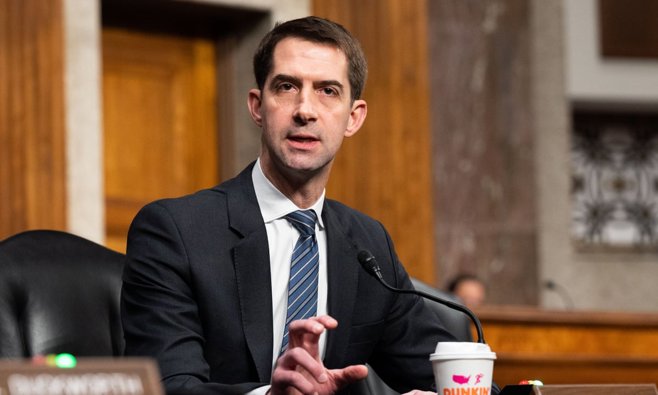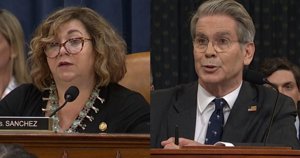
Cotton Warns Iran After U.S. Nuclear Strikes
Senator Tom Cotton warns Iran against retaliation, urging peace after U.S. strikes severely damage Iran’s nuclear sites.
Senator Cotton Warns Iran Following U.S. Strikes
The future of the escalating conflict between Iran, Israel, and the United States remains uncertain as American lawmakers issue fresh warnings to Tehran. Appearing on ABC’s “This Week,” Senate Intelligence Committee Chair Tom Cotton, R-Ark., said Iran’s leaders must recognize the seriousness of President Donald Trump’s resolve following U.S. airstrikes that “severely damaged Iran’s critical nuclear infrastructure.”
“The supreme leader and the ayatollahs in Iran need to understand that President Trump means business,” Cotton emphasized. He urged Iran’s leadership to “sue for peace” and dismantle any remaining elements of its nuclear program, adding that their survival depends on restraint. “We haven’t targeted the supreme leader, we haven’t targeted their energy infrastructure, we haven’t targeted other critical infrastructure,” Cotton noted, underscoring that significant Iranian assets remain untouched.
Unspoken Threats and Calls for Restraint
Cotton pointed out that the United States and Israel possess the capability to hit other high-value Iranian targets if provoked. “That’s an implicit message that Iran still has things that they hold dear, that neither the United States nor Israel has struck. Iran needs to heed President Trump’s warning.” When pressed by ABC’s Jonathan Karl on whether the U.S. would ever target Iran’s supreme leader, Ayatollah Ali Khamenei, Cotton would not rule out any option. “President Donald Trump does not bluff. And there are still numerous targets that Iran holds very dear,” he warned. “My message to the supreme leader is look at the lessons of history. Do not — do not tempt fate. Do not target Americans. Heed Donald Trump’s warning.”
The U.S. escalated its involvement in the ongoing conflict by deploying bunker-buster bombs and firing dozens of missiles at Iranian nuclear facilities, intensifying a volatile situation with global implications. These strikes took place on Sunday morning local time, marking a major escalation in military operations in the region.
Iran Blames U.S. for Crossing ‘Red Line’
In response to the attacks, Iranian officials condemned the United States for what they called an act of aggression that crossed “a very big red line.” Iranian Foreign Minister Abbas Araghchi assigned full responsibility for the “dangerous consequences and far-reaching implications” to the U.S. administration. Araghchi announced he would travel to Moscow to coordinate a response with Russia, a close ally, as diplomatic efforts shift in the wake of the strikes.
The United States’ decision to strike, and the subsequent threats and warnings, have left the door open to both further escalation and the possibility of renewed diplomatic negotiations. With Iranian leaders now consulting with Russia, and U.S. lawmakers drawing clear red lines, the next moves by Tehran will likely shape the region’s stability and the broader global response.
As tensions continue to mount, Senator Cotton’s warning stands as both a call for restraint and a reminder of the consequences should Iran choose confrontation over peace. The world now waits to see if Iran will heed these warnings or test the limits of U.S. resolve.






